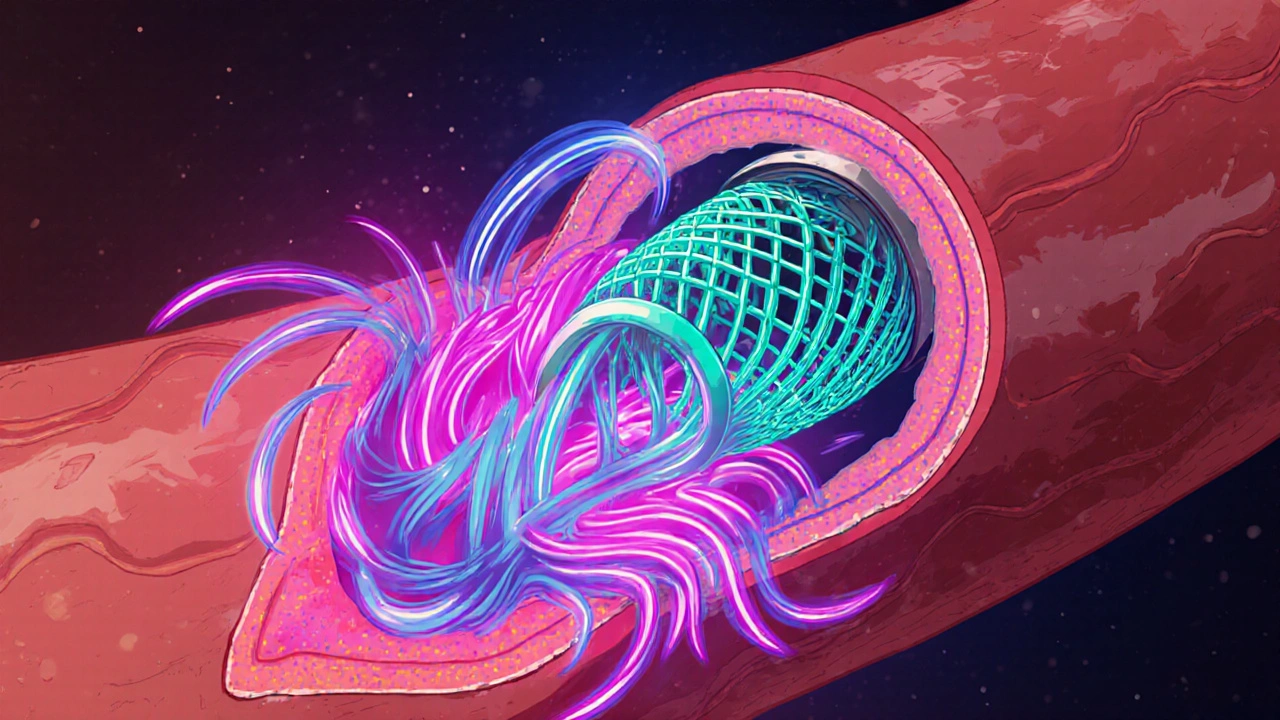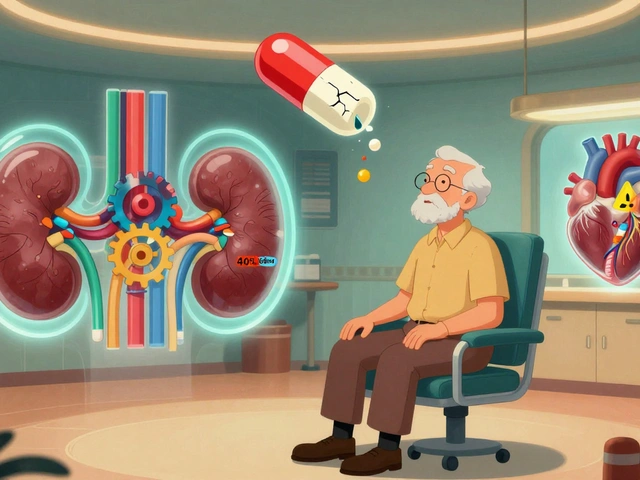Stent Thrombosis: Causes, Risks, and How to Prevent It
When a stent thrombosis, a dangerous blood clot that forms inside a heart stent after it’s placed. Also known as stent clotting, it can block blood flow to the heart and trigger a heart attack—sometimes without warning. This isn’t a rare glitch. It happens in about 1% of cases within the first year after stent placement, but when it does, the results can be life-threatening.
Stent thrombosis doesn’t happen randomly. It’s tied to how your body reacts to the metal scaffold placed in your artery. The biggest risk? Stopping your antiplatelet therapy, medications like aspirin and clopidogrel that stop blood platelets from clumping together too soon. Many people feel fine after stent surgery and quit their pills—sometimes because of cost, side effects, or just forgetting. But skipping even a single dose can raise your risk dramatically. Doctors usually recommend dual antiplatelet therapy for at least 6 to 12 months after a stent, and sometimes longer if you’ve had a heart attack.
Other factors play a role too. If you have cardiovascular disease, a group of conditions affecting the heart and blood vessels, including narrowed arteries and prior heart attacks, your blood is more likely to clot. Diabetes, smoking, and kidney disease make it worse. Even the type of stent matters—older bare-metal stents have higher clotting rates than modern drug-coated ones, but even those aren’t foolproof.
You won’t always get warning signs. Some people feel sudden chest pain, shortness of breath, or nausea—classic heart attack symptoms. Others just feel off. That’s why following your treatment plan isn’t optional. It’s your best defense. Regular check-ups, sticking to your meds, and quitting smoking aren’t just good advice—they’re survival tools.
What you’ll find below are real, practical guides that dig into how these medications work, what to watch for, and how to avoid mistakes that put you at risk. From comparing blood thinners to understanding diet’s role in healing, these posts give you the tools to stay safe after stent placement—not just guess your way through recovery.
 21 October 2025
21 October 2025
How High Blood Pressure Increases Risk of Blood Clots in Stents
Learn how high blood pressure raises the risk of blood clots in coronary stents, the underlying mechanisms, clinical data, and practical steps to lower that danger.





11